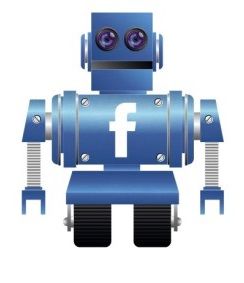Facebook develops artificial intelligence test in pursuit of human-level digital assistant

Artificial intelligence researchers at Facebook have developed an intelligence test for computers that it hopes could one day be used to create a digital assistant.
The team of researchers at Facebook's AI lab in New York developed their own version of the Turing Test, pioneered by computer scientist Alan Turing to judge a machine's ability to exhibit behaviour that is indistinguishable from a human.
The test comprises a list of 20 tasks that become increasingly more difficult, though always within a human's abilities.
One potential of the digital assistant that the team is working towards would be in filtering a Facebook user's news feed.

"People have a limited amount of time to spend on Facebook, so we have to curate that somehow," Yann LeCun, director of AI research at Facebook, told New Scientist. "For that you need to understand content and you need to understand people."
A recent study by scientists from the University of Cambridge and Stanford University found that computers with access to a person's Facebook likes were a better judge of their personality that friends and family.
"In the future, computers could be able to infer our psychological traits and react accordingly, leading to the emergence of emotionally intelligent and socially skilled machines," said the study's lead author Wu Youyou.
"In this context, the human-computer interactions depicted in science fiction films such as Her seem to be within our reach."
Google and Microsoft are among other tech giants currently looking into artificial intelligence research, though the quest for human-level AI has led some academics to warn of the potential dangers this poses.
Renowned physicist Stephen Hawking suggested last year that advanced artificial intelligence could "spell the end of the human race", leading AI researcher Murray Shanahan to suggest any human-level AI should also be human-like, capable of empathy and emotion.
Facebook's LeCun believes that such concerns are perhaps premature, saying: "AI machines are still very dumb and we are still very much in control.
"It's not like some company is going to come out with the solution to AI all of a sudden and we're going to have super-intelligent machines running around the internet."
© Copyright IBTimes 2025. All rights reserved.






















